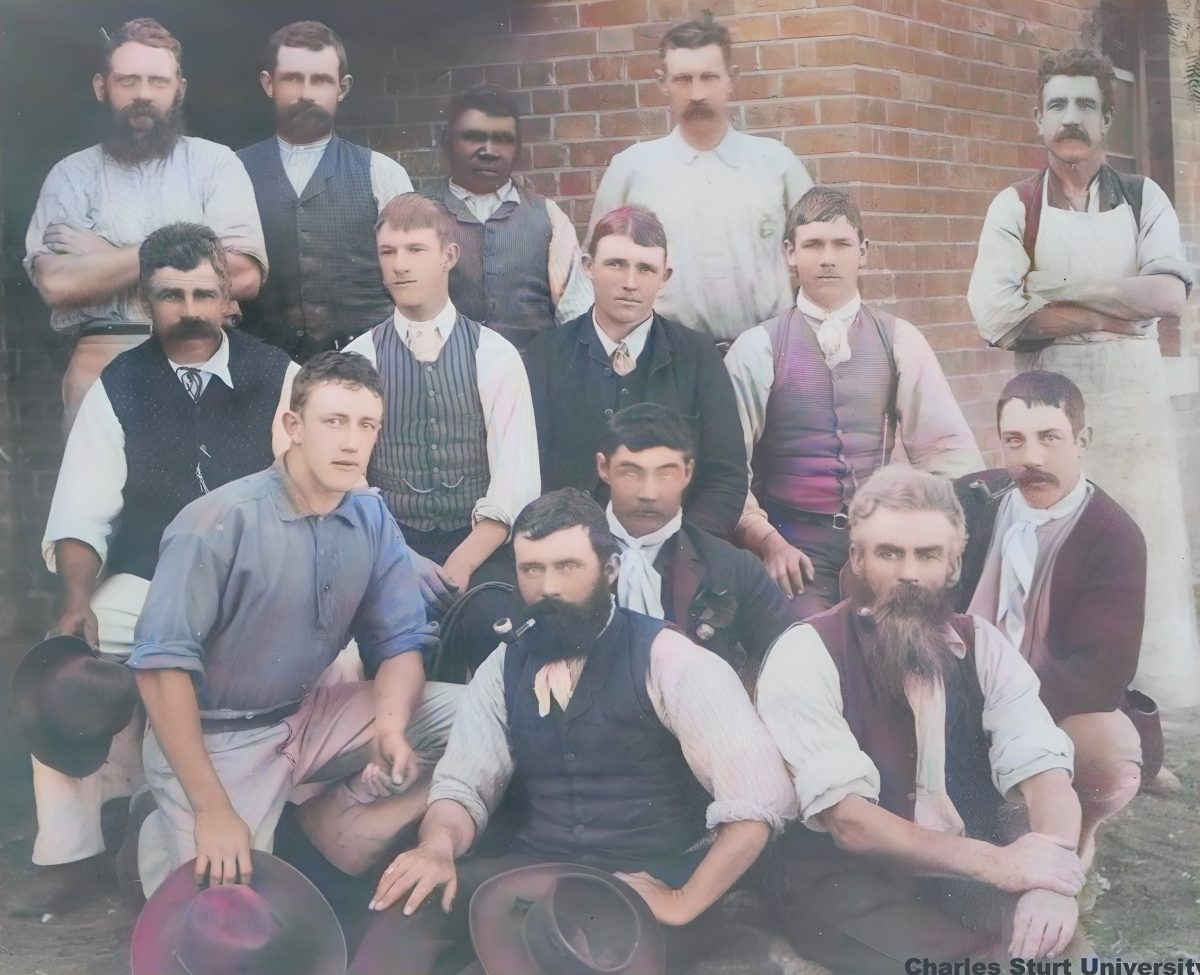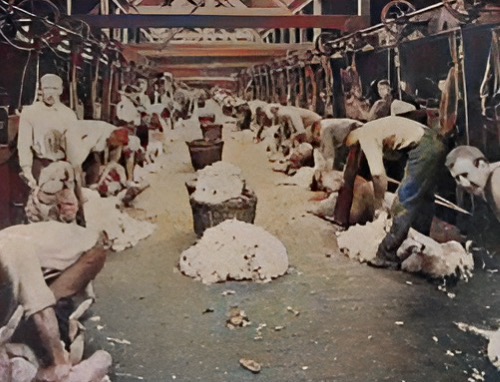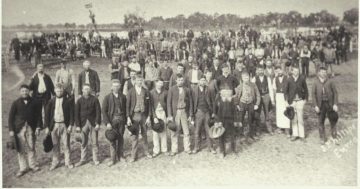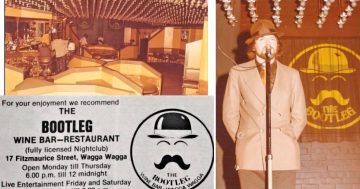
A group of Toganmain station workers in 1891. Photo: CSU Regional Archives.
In the wake of the recent push by the ”Friends of Toganmain” to resurrect the Riverina’s largest woolshed, we thought we’d take a look back to the iconic station’s glory days.
Situated between Darlington Point and Carrathool, Toganmain Station boasted 13 miles (20 km) of river frontage and was established in 1867 by NSW’s Colonial Secretary Sir Alexander Macleay as one of the first grazing properties in the region.
Thomas Robertson Senior bought the station’s original 167,000 acres (67,500 hectares) in blocks and it remained in the family until 1988.
The Toganmain woolshed, built in 1875, featured 110-blade stands and in September 1876 set an Australian record of 202,292 sheep shorn by 92 blade shearers.

An early photo captures dozens of shearers using the Wolseley Sheep Shearing Machine that was introduced to the shed in 1888. Photo: Friends of Toganmain.
A correspondent for the Australian Town and Country Journal described the property in glowing terms after a visit in 1881: “The woolshed accommodates some 70 or 80 shearers, and as many as 7000 sheep have been shorn in one day under its spacious roof.
“The store, in which the season’s wool is temporarily placed and the station rations are kept, is of very large dimensions, and is alltogethor the biggest thing of the kind, that your correspondent has ever seen.”
He described the workers’ facilities as “commodious” and “unique” and the homestead as being “of a highly substantial and attractive charactor” that included “a really beautiful garden”.
By the early 1890s, the station covered more than 300,000 acres (121,500 ha), with about 200,000 sheep shorn each year.
The bustling micro-village also included a horse-drawn tramway that ran from the woolshed to stores and wool scour at the wharf beside the river.

The station had the appearance of a village on the river in 1891. Photo: CSU Regional Archives.
During the final years of the 19th century, Toganmain became a focal point of violent union uprisings over workers’ rights, leading to the birth of the modern labour movement.
Disputes over pay rates erupted during the 1887 shearing season between unionists and non-unionists, and men who crossed the picket line were beaten and thrown in the river.
As technology shifted, the revolutionary Wolseley Sheep Shearing Machine was demonstrated in the woolshed in 1887.
An account in The Tasmanian in 1888 described the impressive results of the first trials across NSW.
“Every sheep was shorn ‘as clean as a new-laid egg’ and perfectly free from cuts or stabs. The men one and all admitted the great superiority of the machine in trimming. It was in this particular that it was expected to be defective, but on the contrary, it is in this that it is so greatly superior to hand shears.”
The article notes that 15 of the new-fangled machines were to be installed at Toganmain alongside 65 manual blade stands.

The Toganmain woolshed has seen seven million sheep shorn. Photo: Toganmain Woolshed Precinct.
In literature, Banjo Paterson immortalised the property in his 1905 poem Flash Jack from Gundagai, which opens with the line “I’ve shore at Burrabogie and I’ve shore at Toganmain”.
With so much history now rusting on the plain, the grassroots ”Friends of Toganmain” are driving a campaign to preserve the Riverina’s largest woolshed and convert it into a museum and tourist attraction.
They have launched a GoFundMe campaign to raise money to subdivide the five acres (2 ha) of land containing old shearers’ quarters and sheds and to lodge a development application.
You can learn more about the project here.









